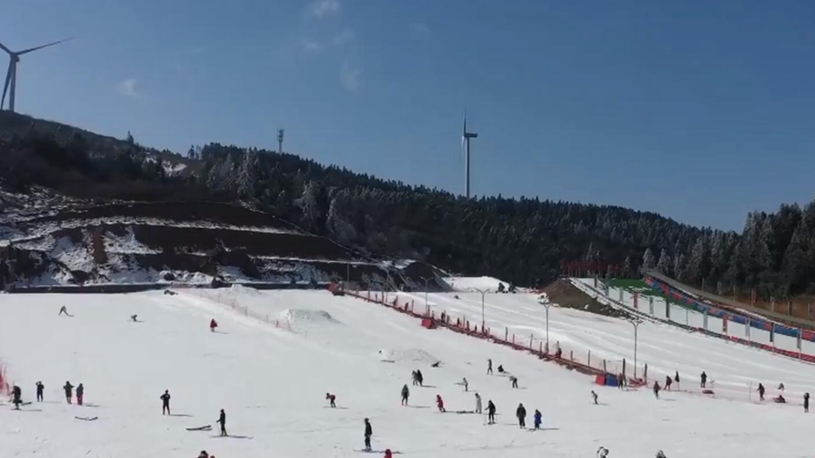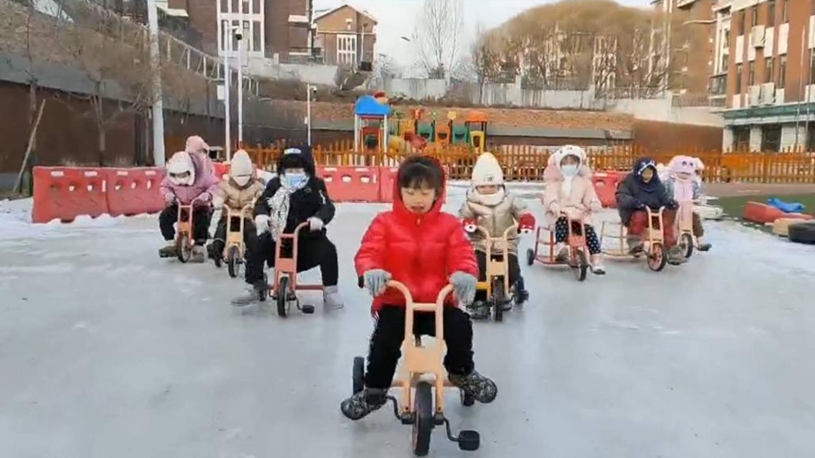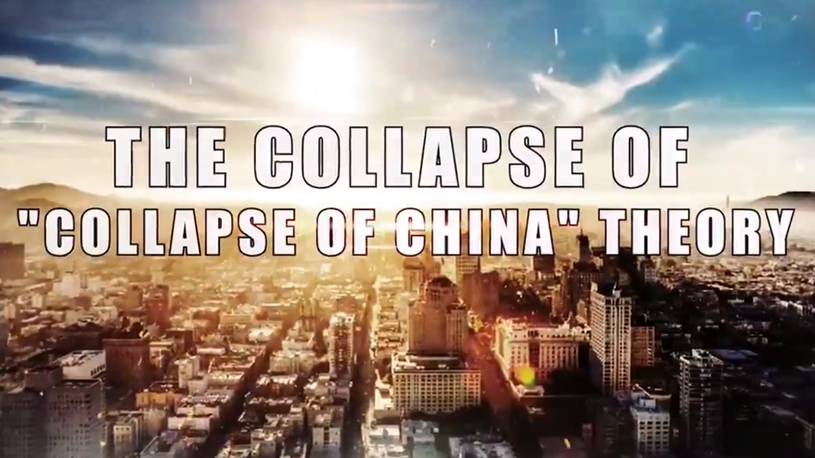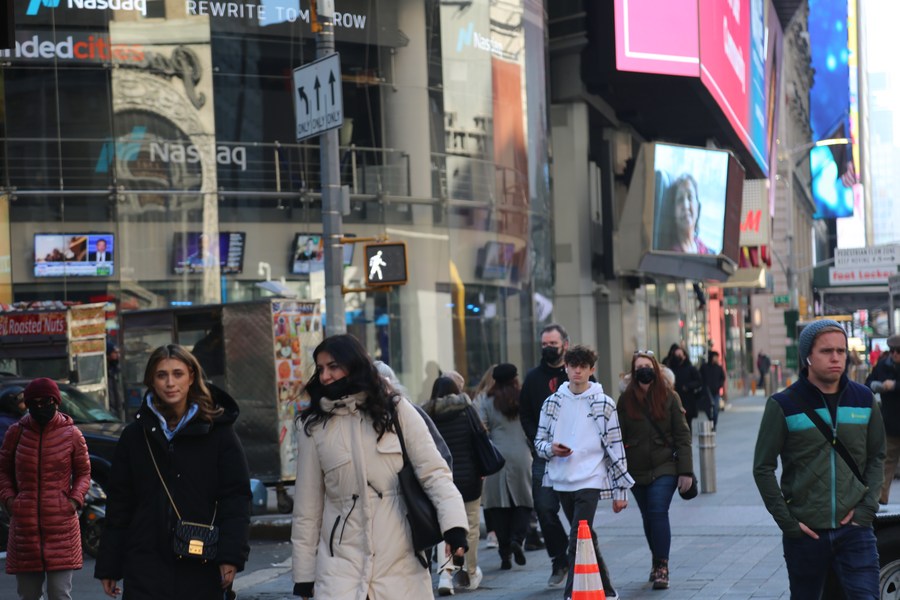
People walk on a street in New York, the United States, on Feb. 9, 2022. (Xinhua/Liu Yanan)
To drop effective public health strategies such as vaccination and mask mandates too soon may likely worsen virus spread, experts warned.
WASHINGTON, Feb. 18 (Xinhua) -- More states and major cities across the United States are lifting their vaccination and mask mandates as the rate of COVID-19 infections drops, but health experts have warned dropping pandemic protocols too soon may worsen the spread of the virus.
California, the most populous U.S. state, unveiled a milestone plan Thursday, as Governor Gavin Newsom announced the state would become the first in the nation to treat the coronavirus as a manageable, "endemic" risk.
This week, California ended its mask mandate for fully vaccinated residents, but state health officials still strongly encourage mask-wearing in public indoor spaces.
New York State also announced plans to drop its mask-or-vaccine mandate, which required businesses to demand proof of full vaccination or mask-wearing at all times in indoor public spaces.
On Thursday, New Jersey became the latest city to lift the requirement to show proof of vaccination at restaurants and other public venues.
More U.S. states and cities are doing the same as COVID-19 cases, hospitalizations and deaths drop nationwide.
The country is now averaging about 120,000 daily new cases, a decrease of 43 percent compared with the previous week, according to a new weekly report published by the U.S. Centers for Disease Control and Prevention (CDC) on Friday.

People visit the LA Art Show in Los Angeles, the United States, Jan. 19, 2022. (Photo by Zeng Hui/Xinhua)
New hospital admissions in the country is about 8,600 each day, a 28.8 percent decrease from the prior 7-day average.
Currently about 2,000 new deaths are reported in the country daily, a decrease of 14.5 percent compared with the previous week, CDC data showed.
But public health experts are watching the trend with wary eyes. They noted that while about 76 percent of the population has received at least one shot of vaccine, millions of people still have not.
To drop effective public health strategies such as vaccination and mask mandates too soon may likely worsen virus spread, experts warned.
"The coronavirus is an RNA virus that is constantly mutating. The next outbreak may return in fall or winter this year," Zhang Zuofeng, chair of the Department of Epidemiology at the University of California, Los Angeles, told Xinhua.
But the next wave may not be as devastating as the outbreaks caused by the Delta and Omicron variants, as the toxicity of the coronavirus may decrease as the virus mutates to survive, Zhang noted.
The Omicron variant continued to be dominant in all infection cases in the United States, with the CDC predicting the national proportion of Omicron to be 100 percent for the week ending Feb. 12.
An Omicron subvariant, known as BA.2, made up 3.9 percent of all infections, up from 1.6 percent in the week ending Jan. 29.
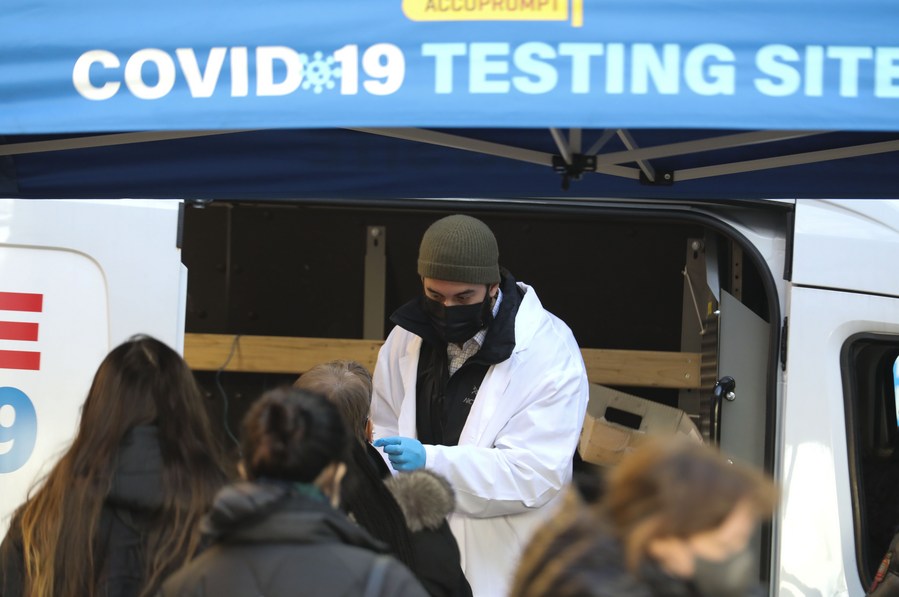
A medical worker wearing a face mask collects a sample at a COVID-19 testing site in Manhattan of New York, the United States, Jan. 19, 2022. (Xinhua/Wang Ying)
The BA.2 virus is not just spreading faster than its distant cousin, it may also cause more severe disease and appears capable of thwarting some of the current key weapons against COVID-19, according to a new lab research from Japan.
"I wish the pandemic were over and it was safe to lift vaccine mandates, particularly in spaces where masks will be off for eating and drinking. This seems like a move to promote normalcy without there really being normalcy," said Sadiya Khan, an epidemiologist at Northwestern University Feinberg School of Medicine.
Khan said she is sympathetic to the business perspective to remove vaccine mandates and to encourage more patrons and guests. However, she added that "this especially puts in danger those who are immunocompromised or can't yet get vaccinated."
The United States went through last summer, when many thought things were getting back to normal and rolled back mitigation policies designed to stop the spread. However, the Delta variant came, followed by the even more contagious Omicron variant, which forced authorities to reimpose stricter pandemic protocols.
"This is not over. I think we need to be a bit more patient," said Anthony Santella, professor and interim chair at the Department of Health Administration and Policy at the University of New Haven. ■







